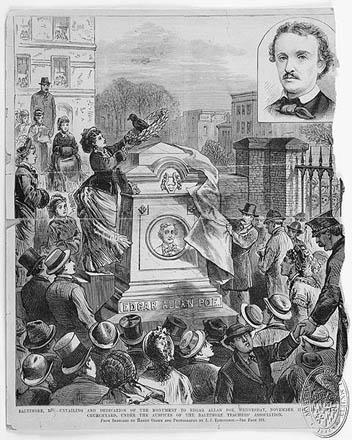My Thoughts
This story was another pleasant surprise written by Edgar Allan Poe. The narrator is a gentleman that happens to live a thousand years in the future. He humorously describes events of the past, often associating people and countries with incorrect names, though you can easily guess at their true owners. He states that there were two dominant philosophers, Aries Tottle and Hog. These names have probably been broken through time to describe Aristotle and Francis Bacon.
This futuristic world is not a good one it seems as war and plagues are celebrated. There is no individuality, only a greater good. A man is accidentally jettisoned from a boat, but they won't go back because it is just an individual. How terrifying! Technology, it seems, hasn't advanced too much as balloons are the dominant means of traveling, while others still use trains.
A very interesting part of the story though was the attempted explanation of the center of the Milky Way. Poe guessed that there should be some supermassive structure there, but invisible to our eyes in order to keep the galaxy and our solar system in constant rotation. A black hole! He seemed so close so early in history. The original theory of some type of "black hole" had been briefly stated in 1784 but didn't seem to attract much attention. Poe was really ahead of his time and was very well acquainted with many things celestial.
The story continues to mention extraterrestrials and notes a world empire based on what was once known as Long Island, New York. Clever hints are thrown around often and the ignorance of history become quite hilarious. Ignorance such as stating General Cornwallis must have been some wealthy dealer in corn and that there existed great "Amriccans" such as John, a smith, and Zacchary, a tailor.
My Rating
I would rate this story a 3.8 out of 5. It was quite humorous and shed some light on futuristic thoughts during Poe's time. Balloon and train travel still dominated the sky and earth respectively. I believe this is common as the imagination can only expand so far past its current knowledge level. Take flying cars for example. Do you really think that upon discovery of an antigravity technology we will stick with the basic model of the car? We will likely be traveling in cubes or spheres at that point. There will probably be no windshields and everything will be computerized. There will likely be no manual overrides either. What is to say we will traverse an actual physical plane at that point?

Add new comment